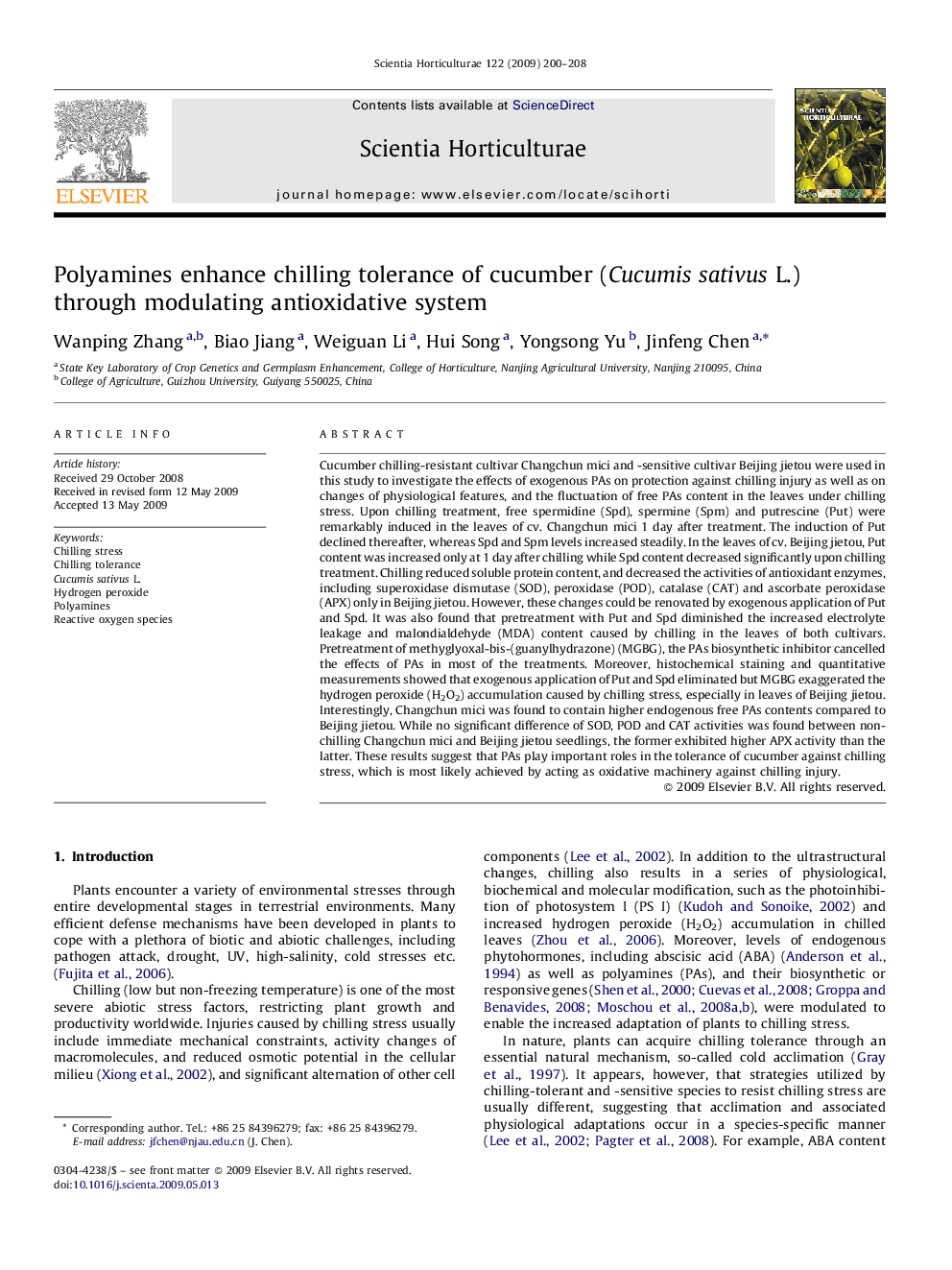| Article ID | Journal | Published Year | Pages | File Type |
|---|---|---|---|---|
| 4569019 | Scientia Horticulturae | 2009 | 9 Pages |
Cucumber chilling-resistant cultivar Changchun mici and -sensitive cultivar Beijing jietou were used in this study to investigate the effects of exogenous PAs on protection against chilling injury as well as on changes of physiological features, and the fluctuation of free PAs content in the leaves under chilling stress. Upon chilling treatment, free spermidine (Spd), spermine (Spm) and putrescine (Put) were remarkably induced in the leaves of cv. Changchun mici 1 day after treatment. The induction of Put declined thereafter, whereas Spd and Spm levels increased steadily. In the leaves of cv. Beijing jietou, Put content was increased only at 1 day after chilling while Spd content decreased significantly upon chilling treatment. Chilling reduced soluble protein content, and decreased the activities of antioxidant enzymes, including superoxidase dismutase (SOD), peroxidase (POD), catalase (CAT) and ascorbate peroxidase (APX) only in Beijing jietou. However, these changes could be renovated by exogenous application of Put and Spd. It was also found that pretreatment with Put and Spd diminished the increased electrolyte leakage and malondialdehyde (MDA) content caused by chilling in the leaves of both cultivars. Pretreatment of methyglyoxal-bis-(guanylhydrazone) (MGBG), the PAs biosynthetic inhibitor cancelled the effects of PAs in most of the treatments. Moreover, histochemical staining and quantitative measurements showed that exogenous application of Put and Spd eliminated but MGBG exaggerated the hydrogen peroxide (H2O2) accumulation caused by chilling stress, especially in leaves of Beijing jietou. Interestingly, Changchun mici was found to contain higher endogenous free PAs contents compared to Beijing jietou. While no significant difference of SOD, POD and CAT activities was found between non-chilling Changchun mici and Beijing jietou seedlings, the former exhibited higher APX activity than the latter. These results suggest that PAs play important roles in the tolerance of cucumber against chilling stress, which is most likely achieved by acting as oxidative machinery against chilling injury.
